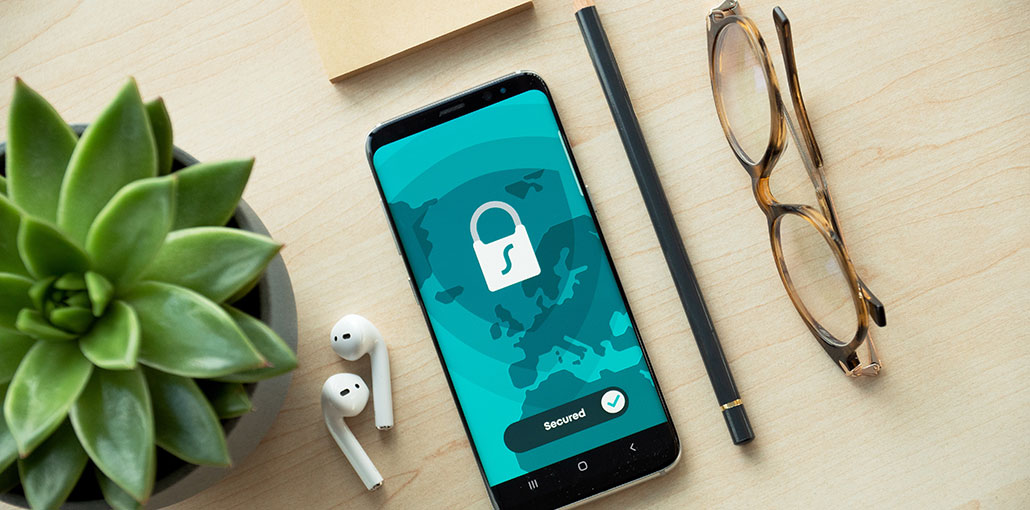We’ve come a long way since the 1990s when online connectivity was primarily available through Internet cafes. Nowadays, it’s unthinkable not to have Internet access while traveling. However, even the absence of Wi-Fi is not enough to keep us offline – we’ve got mobile hotspots to power our online communications.
With summer vacation plans fast approaching, you will want to keep your online communications secure. That means avoiding public Internet access due to security vulnerabilities. You can mitigate risks by following the five easy-to-implement practices listed in this guide.
1. Use Biometric Tools and Encryption to Protect Your Login Credentials
Sensitive, personal information is stored on our electronic devices. This includes logins & passwords for online banking, social media, and email accounts. Fortunately, we can enable multifactor authentication. This consists of facial recognition, fingerprint scanning, authenticator login credentials, and email verification. Always ensure that access to your accounts is protected from prying eyes.
Also read: Top 10 Benefits of Biometrics Technology
2. Wi-Fi or no Wi-Fi?
Many people in the West have access to unlimited cellular data, but not everyone has that privilege. As a traveler, you may be tempted to use Wi-Fi at the airport, cafes, hotels, fast food establishments, etc. Unfortunately, public Wi-Fi is not safe. Anyone can connect up to a public Wi-Fi network, which puts you at risk.
If you’re staying at a hotel or guesthouse, you may see what appears to be a legitimate Wi-Fi network setup for you to use. Unfortunately, hackers routinely set up fraudulent networks so that they can infiltrate your devices. At hotels, always validate the Wi-Fi network’s exact name and be sure to use your unique password. Otherwise, connect up to your mobile hotspot from your smartphone.
3. Safely Store Your Connected Internet Devices
While traveling, most of us tend to soak up the sun’s rays, the ocean mist or enjoy the call of the wild. Remember this: your electronics are best stored safely indoors wherever your travels take you. They don’t tend to fare well with heat, humidity, or water. Likewise, cybersecurity experts caution against leaving your most sensitive, personal information hidden in plain sight.
Your summer plans will go awry if criminals steal your smartphone, tablet, or notebook. Keep them safely locked up, out of the heat, and away from the water. Cooler boxes can dramatically reduce the ambient temperature in your vehicle – use towels to form a cushion between the ice packs and your electronics. Use Ziploc bags to prevent moisture from seeping in.
4. Add a Security & Privacy Shield to your Browser
There are powerful applications that can easily perform a website safety check for you. While traveling and searching online for things to do on your vacation, you don’t need to worry about navigating to unsafe websites. Many of us are like proverbial fish out of the water on vacation; we tend to take advice from strangers about what to see and where to go.
With the right browser add-on on your devices, you can confidently browse the Internet without worrying about viruses, malware, hackers, and unsafe websites. One such tool, known as WOT (Web of Trust) is a community-driven initiative that uses the collective knowledge of millions of members to determine the safety of websites.
Also read: All You Need to Know About Google Security Alert Issue
5. Bluetooth Security Settings
Most of us are well familiar with Bluetooth on our smartphones, MacBooks, and electronic devices. However, did you know that some Bluetooth settings allow automatic connections if your device is within range of a device trying to connect with you? It’s essential that you can approve or deny Bluetooth connection requests to your device. Bad actors could install malware, Ransomware, viruses, Trojans, or steal your data through Bluetooth without this setting in place.
Last Word
Criminals are opportunists. They tend to take the path of least resistance when implementing their grand plans. If they know that you’re not at home, the coast is clear for them to break into your home and steal your stuff. It’s foolhardy to post pictures of yourself that you don’t want other people to see, such as employers, friends, relatives, or criminals. Please don’t put all your business out on the street; it’s not safe when you’re traveling.










Leave a comment